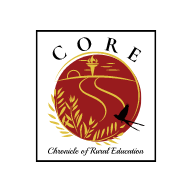'I got to sit at the table': The Impact of Distance Social Work Education in Rural and Tribal Communities in Montana
Main Article Content
Abstract
Online education has been proposed as a potential tool for addressing social work workforce gaps for meeting student needs in rural and remote settings. However, little research explores the use of distance learning in BSW education for rural states and with large Native American populations. To help fill this gap, we investigated a BSW distance learning program that serves rural and Native American students in the Western United States. Using semi-structured interviews, we elicited the views of student, staff, and faculty perspectives surrounding the program’s unique strengths and areas for improvement. This program is affiliated with an accredited school of social work at a mid-sized state university, which provides technical and staffing support to faculty, staff, and students. Students complete two years of in-person classes at a Tribal or community college in their area, followed by two years of online classes. The interviews were coded and analyzed using a qualitative descriptive approach. The results of the study highlight the importance of meeting students’ needs, building strong relationships with rural and Tribal partners, and tailoring curriculum to address the needs of communities served. Participant quotes speak to the ability of distance learning to provide a flexible and supportive educational opportunity for rural and Native American students. We believe that online education, when done with care and culturally adapted for communities, can be an important tool in developing the social work workforce for rural and Tribal communities. We discuss implications for future social work distance learning programs.
